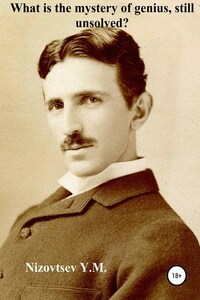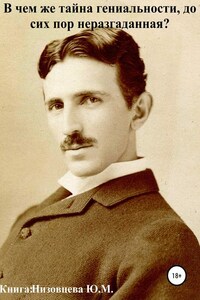I
Recognized, that geniuses best of all manage to get new and non-obvious knowledge. To same, the mass of various signs of genius is listed.
However, all this, in essence, is about nothing, because it doesn’t say what specifically ensures the acquisition of new knowledge and how can geniuses get it so effectively? What signs have knowledge obtained ин the genius, unlike, for example, from knowledge, received by the talent.
In other words, a lot of correct words and in general much interesting are told about genius and properties of the genius, but to this day remain not clear: the source of genius, the driving force of genius, the main incentives of genius, the main method of achievement by the genius of the adequate result, the main signs of expression of genius.
Nothing intelligible about these peculiar properties, which necessarily accompany genius, is not said, except for the presence of obligatory natural endowments, extraordinary intelligence, favorable conditions for the manifestation of genius and the results that are recognized out of the ordinary.
Moreover, from all that has been written about geniuses, a picture emerges of a certain fallout of geniuses from the ranks of humanity, their perfect singularity, which is far from being so, since many geniuses were called to action by current events – means, they were already ready to manifest their properties to a certain extent.
Again, there is still no explanation of the boundary separating genius from talent.
All this vagueness, as well as the banality of definitions of geniuses and talents, forced us to comment on this matter.
Indeed, how many can reason, that talent is set of outstanding abilities, a high degree of endowments in certain sphere of activity, and genius is the highest degree of talent development associated with the creation of qualitatively new, unique creations, the discovery of previously unknown ways of creativity?!
These words indicate only one thing: the mediocrity of their writers.
Let's see what else they talk about genius, and it's easy to check, looking at the Internet.
Some claim that genius is determined under the results of a person’s work on creating something that is absent in nature and society, and that are out of a range of known achievements.
It is absolutely fair, but is unclear at the expense of what nevertheless similar results are achieved.
Some researchers of this phenomenon (a number of the directions of the structurally-functional theory of genius) believe, the genius is a result of huge diligence, persistence, patience, determination and will power (the theory of efficiency).
The fact that this statement is not serious, is evident from the fact that it does not mention such mandatory properties of creativity, which are characteristic not only of geniuses, but simply for people of creative activity, for example, some endowment, sufficient level of intelligence, education, experience, aspiration to inspiration, etc.
There is also the consideration that at the heart of genius lies exorbitant passions, love for the world, for people, for own work, and an irresistible desire to learn the truth (the passionary theory).
All these properties, rather, can be attributed to the great opera singers, and not to geniuses of various kinds.
Other structuralists believe that a genius is a person with extraordinary intellectual power, exceptional and extraordinary mental abilities (the intellectualist theory).
All these remarkable signs are peculiar, for example, to outstanding chess players, who have nothing to do with obtaining extraordinary (non-obvious) knowledge, dealing only with a combinatorial mind game.
There is also a rather strange consideration regarding genius: it is based on a passionate desire to improve everything that exists and constantly follow the highest standards of excellence (the perfectionist theory).
Properties of this sort belong to all idealists, but idealists great multitude, though, of course, and geniuses are in some way idealists, since they largely neglect pragmatics.
Who only doesn’t show own rather limited ideas about genius?!
Here, there are also theorists relying on attribution, that is, being lumped together of all more or less clear signs of great persons, pointing herewith the extraordinary development of one of them.
Their definition of genius: phenomenality, limit and extreme level of development of abilities, domination and extraordinary development of one of the qualities or mental processes of a person.
To gain these remarkable properties can only, in their opinion, by increased attention, lively perception and impressionability, intuition (they do not define it in any way), unusual imagination and fantasy ideas, the ability to think well, great experience and perfect memory (apparently, poor geniuses should be regretted only as they are forced by that memory to remember all bad for them all rest of life).
Theorists of suprematism are relied on this remarkable list, believing certainly to achieve thanks to optimum "binding" of the specified advantages of the ingenious manifestations.














